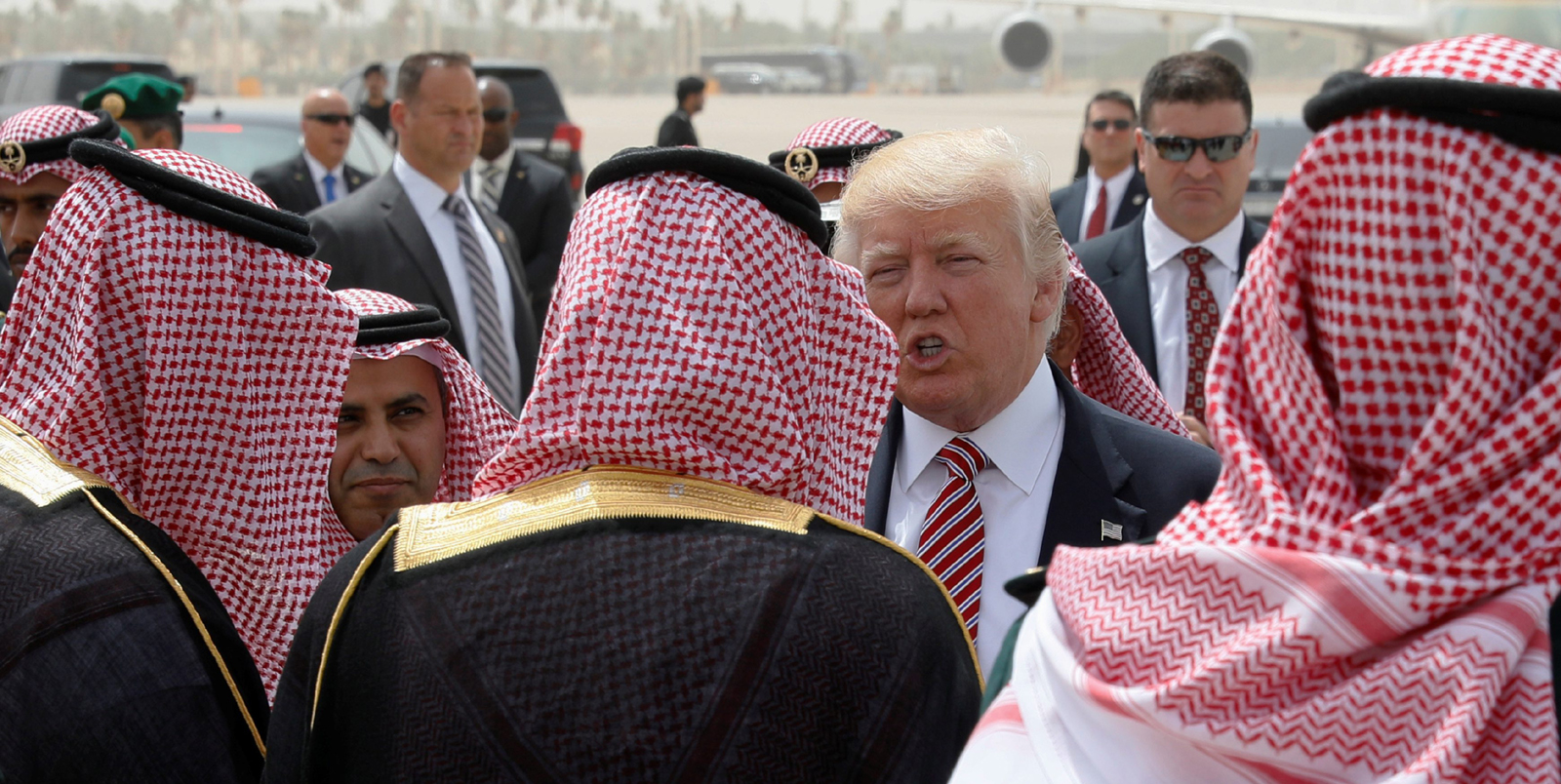Senior fellow – foreign policy, center for 21st Century security and intelligence, center for ME policy By Bruce Riedel
Last month, President Trump visited Saudi Arabia and his administration announced that he had concluded a $110 billion arms deal with the kingdom. Only problem is that there is no deal. It’s fake news. I’ve spoken to contacts in the defense business and on the Hill, and all of them say the same thing:
There is no $110 billion deal. Instead, there are a bunch of letters of interest or intent, but not contracts. Many are offers that the defense industry thinks the Saudis will be interested in someday.
So far nothing has been notified to the Senate for review. The Defense Security Cooperation Agency, the arms sales wing of the Pentagon, calls them “intended sales.” None of the deals identified so far are new, all began in the Obama administration. None of the deals identified so far are new, all began in the Obama administration. An example is a proposal for sale of four frigates (called multi-mission surface combatant vessels) to the Royal Saudi navy.
This proposal was first reported by the State Department in 2015. No contract has followed. The type of frigate is a derivative of a vessel that the U.S. Navy uses but the derivative doesn’t actually exist yet. Another piece is the Terminal High Altitude Air Defense system (THAAD) which was recently deployed in South Korea. The Saudis have expressed interest in the system for several years but no contracts have been finalized. Obama approved the sale in principle at a summit at Camp David in 2015. Also on the wish list are 150 Black Hawk helicopters. Again, this is old news repackaged.
What the Saudis and the administration did is put together a notional package of the Saudi wish list of possible deals and portray that as a deal. Even then the numbers don’t add up. It’s fake news. Moreover, it’s unlikely that the Saudis could pay for a $110 billion deal any longer, due to low oil prices and the two-plus years old war in Yemen. President Obama sold the kingdom $112 billion in weapons over eight years, most of which was a single, huge deal in 2012 negotiated by then-Secretary of Defense Bob Gates. To get that deal through Congressional approval, Gates also negotiated a deal with Israel to compensate the Israelis and preserve their qualitative edge over their Arab neighbors.
With the fall in oil prices, the Saudis have struggled to meet their payments since. You will know the Trump deal is real when Israel begins to ask for a package to keep the Israeli Defense Forces’ qualitative edge preserved. What is coming soon is a billion-dollars deal for more munitions for the war in Yemen. The Royal Saudi Air Force needs more munitions to continue the air bombardment of the Arab world’s poorest country.Finally, just as the arms deal is not what it was advertised, so is the much-hyped united Muslim campaign against terrorism. Instead, the Gulf states have turned on one of their own. Saudi Arabia has orchestrated a campaign to isolate Qatar. This weekend Saudi Arabia, the UAE, Bahrain, and Egypt broke relations with Qatar. Saudi allies like the Maldives and Yemen jumped on the bandwagon. Saudi Arabia has closed its land border with Qatar.
This is not the first such spat but it may be the most dangerous. The Saudis and their allies are eager to punish Qatar for supporting the Muslim Brotherhood, for hosting Al-Jazeera, and keeping ties with Iran. Rather than a united front to contain Iran, the Riyadh summit’s outcome is exacerbating sectarian and political tensions in the region.Bruce Riedel is an old CIA hand who has been advising Presidents Bush and Obama, among issues on Pakistan.


